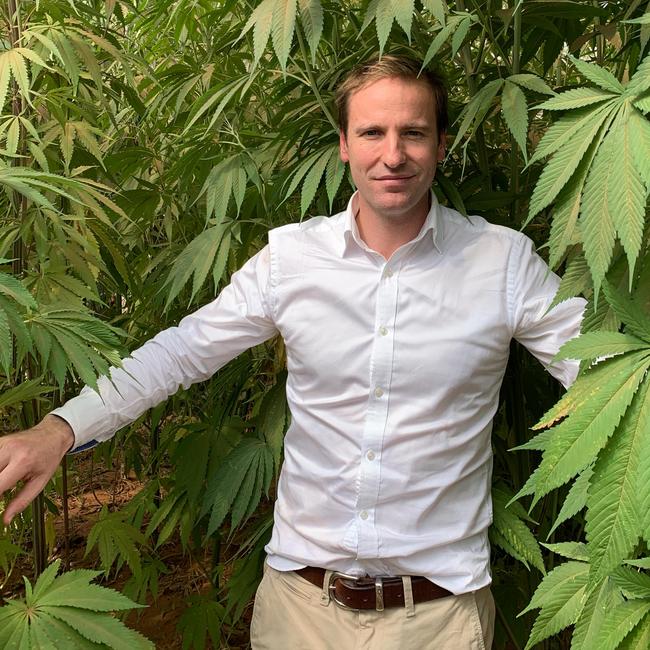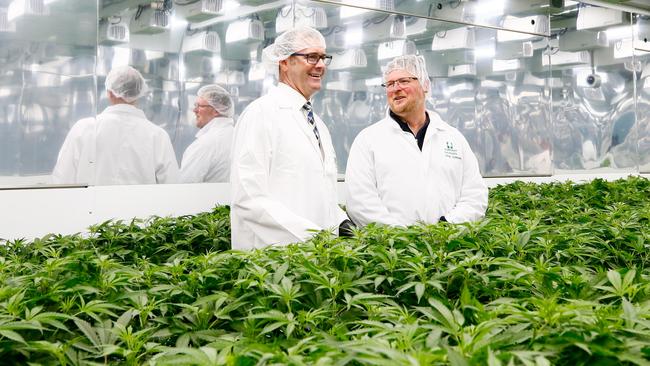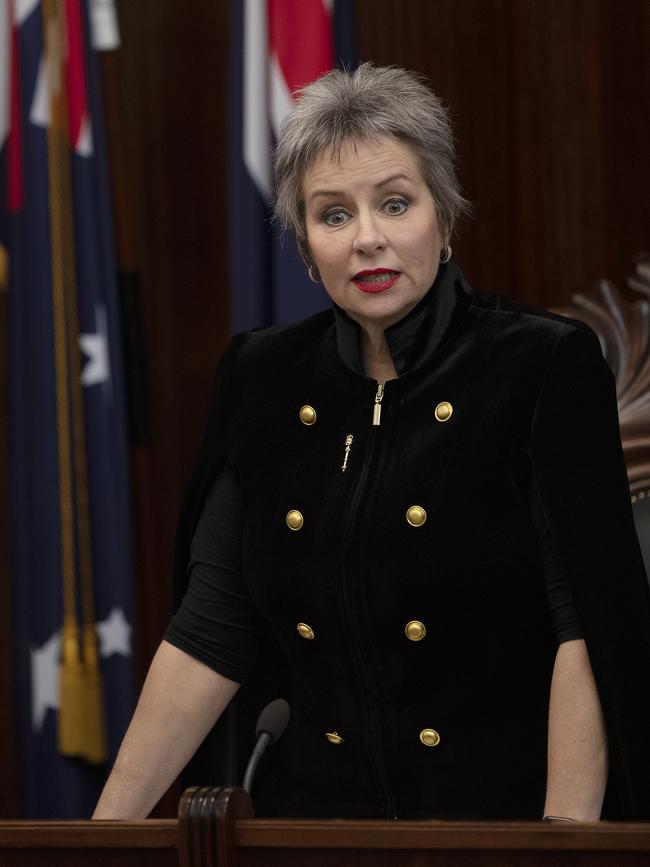Australia’s largest medicinal cannabis plantation could be planted in Tasmania this year
A botanics company has revealed plans to start planting Australia’s largest medicinal cannabis plantation in Tasmania this year. Liberal MP Sue Hickey has welcomed investment in the industry, but says the Government’s support of producers is a ‘moral dilemma’ while so few Tasmanians are able to access the medication. THE PLANS >>
The Launceston News
Don't miss out on the headlines from The Launceston News. Followed categories will be added to My News.
- Budding Tasmanian medicinal cannabis facility opens its doors
- Renewed push for state to legalise cannabis
PLANS to develop Australia’s largest medicinal cannabis plantation in Northern Tasmania were revealed by agribusiness and hemp food company ECS Botanics last week.
A Town Planning application for the facility that eventually aims to produce up to 32,500kg of dry cannabis flower each year has already been approved by Northern Midlands Council.
ECS will develop its outdoor Medicinal Cannabis Project facility once regulatory approvals are finalised and hopes the first stage will be completed this year in time for the December planting window for its CBD plants.
Almost $3m will be spent on infrastructure across three stages.
ECS Managing Director Alex Keach said the company was “taking a next generation approach to medicinal cannabis”.

The announcement followed the opening of a $10m medicinal cannabis facility at Tasmanian
Alkaloids in Westbury last week, which was funded with a state government loan.
Liberal MP Sue Hickey welcomed the “wonderful” investment in the industry, but said her party’s support of medicinal cannabis manufacturing and export for the state’s profit was “hypocritical” while it was “almost impossible” for sick Tasmanians to access medicinal cannabis treatments.
Unlike all other states, Tasmania administers a Controlled Access Scheme for medical cannabis products.
Any patient seeking access to medical cannabis must be referred to a specialist who must then make an application to the Tasmanian Department of Health for assessment by a multidisciplinary panel of expert clinicians.
If a prescription is authorised, the product must be dispensed through a Tasmanian hospital pharmacy.

Only 36 applications have been received under the TCAS with 16 approved and filled.
“I just find it hypocritical that we can send it to the rest of the world and the rest of Australia [while] Tasmanians are effectively being made criminal because they have to go to extraordinary lengths to access something that is much more readily available in other states,” Ms Hickey said.
Ms Hickey called on the government to reconsider its handling of medical cannabis and review upper house reports on legalised medicinal Cannabis from 2014 and 2015.
She also called on the government to adopt recommendations made in the Senate Affairs Reference Committee report into barriers to patient access to medicinal cannabis in Australia published in March.
The senate report labelled Tasmania the “odd one out” with very low prescription numbers and “the most serious concerns about jurisdiction-level differences”.
“Tasmania is the only jurisdiction which has not agreed to participate in the SAS online system and the ordinary access pathways used by other states and territories,” the report said.
It continued: “While some submitters praised the fact that the CAS subsidises the cost of accessing medicinal cannabis to some patients, it was a widely held view that not allowing Tasmanian patients to access medicinal cannabis outside of the CAS is putting them at a significant disadvantage compared to the rest of the country.”

A key recommendation to the committee was that GPs in Tasmania should be permitted to prescribe medicinal cannabis, in line with other jurisdictions.
The committee recommended the Tasmanian government “immediately join all other jurisdictions”.
Ms Hickey said she had received reports it was “almost impossible to find a GP that knows how to access the system and those who have gone through that process have been rejected despite their incredible illnesses”.
“A GP probably sees you more and understands how you’ve been tolerating pain,” she said.
A government spokesman said the CAS ensured access to “unproven medical cannabis products” was safe and consistent with expert reviewed clinical guidelines.
“This is the same process applied to all other unproven medicines access through the public health system in Tasmania,” he said.
Mr Keach said Tasmania was a gloabbly dominant power in the cultivation and extraction of plant-based pharmaceuticals and already Australia’s largest hemp producer amd the world’s largest licit opiate poppy producer.


